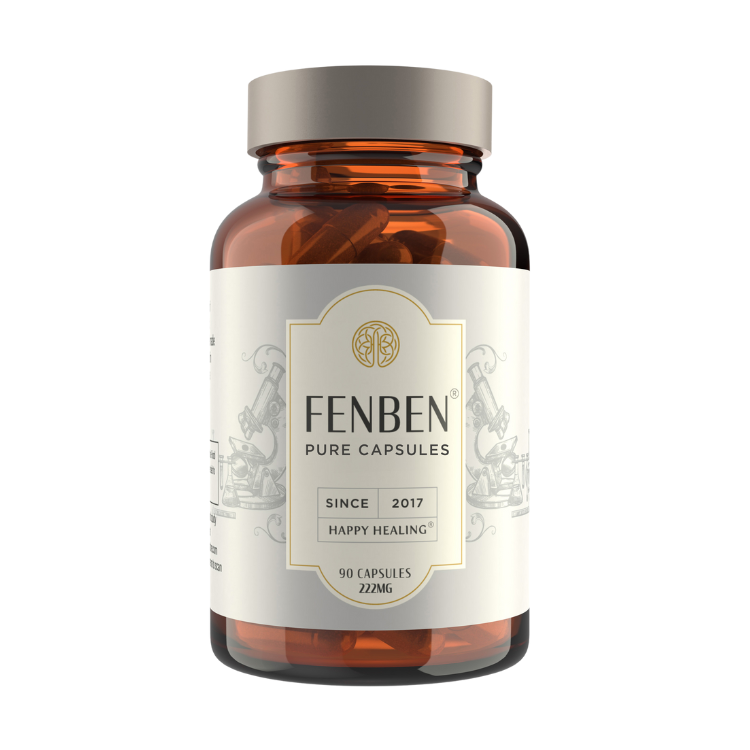Discovering the Devices Behind Fenbendazole and Its Influence On Pet Health
Fenbendazole is a widely utilized anthelmintic recognized for its effectiveness against different bloodsuckers. Its primary mechanism includes the restraint of microtubule development, which interferes with crucial processes in these microorganisms. Beyond its antiparasitic residential or commercial properties, fenbendazole additionally appears to enhance immune actions and has anti-inflammatory benefits. Recognizing these multifaceted impacts could expose brand-new applications for animal health. Nonetheless, questions stay concerning its complete potential and security account.
The Pharmacokinetics of Fenbendazole
The pharmacokinetics of fenbendazole, a widely used anthelmintic in veterinary medicine, includes the research study of its absorption, distribution, metabolism, and excretion within pet systems. After management, fenbendazole is rapidly soaked up from the intestinal tract, with peak plasma concentrations occurring within hours. Its distribution is influenced by aspects such as tissue binding and lipid solubility, permitting it to penetrate various tissues successfully. The medicine undertakes extensive metabolism mainly in the liver, where it is exchanged active and non-active metabolites. These metabolites contribute in the medication's general efficacy and safety and security account. Excretion occurs mainly with feces, with a smaller sized proportion gotten rid of through urine. The half-life of fenbendazole varies among varieties, which influences application routines. Understanding these pharmacokinetic buildings is crucial for maximizing its healing use and guaranteeing reliable parasite control in vet techniques.
Systems of Activity Versus Bloodsuckers
Fenbendazole exerts its antiparasitic results mainly via the inhibition of microtubule development in parasites. This interruption impacts their structural stability and cellular features, bring about impaired power metabolism. Because of this, the medication efficiently endangers the survival and recreation of various parasitic microorganisms.
Inhibition of Microtubule Development
Inhibition of microtubule formation represents an essential system where certain anthelmintic representatives, including fenbendazole, apply their results on bloodsuckers. Fenbendazole binds to tubulin, a protein that forms microtubules, interfering with the polymerization procedure required for microtubule assembly. This interruption impairs essential mobile functions, including mitosis, intracellular transportation, and structural stability. As microtubules play a vital role in maintaining the form and feature of parasitic cells, their restraint leads to cell cycle arrest and eventual death of the bloodsucker. This device is particularly effective against nematodes, as their reliance on microtubules for mobility and nutrient absorption makes them prone to fenbendazole. The inhibition of microtubule development is a critical facet of fenbendazole's restorative efficiency in vet medication.
Interruption of Basal Metabolism
Interfering with power metabolic process is one more essential device by which fenbendazole targets parasitic organisms. This anthelmintic changes the energy manufacturing paths within bloodsuckers, largely influencing their ability to generate adenosine triphosphate (ATP) By inhibiting glucose uptake and interrupting mitochondrial function, fenbendazole limitations the power resources vital for the survival and reproduction of these microorganisms. Consequently, parasites become increasingly at risk to ecological anxieties and immune reactions. Furthermore, the disturbance in basal metabolism not just influences the parasites directly yet likewise minimizes their capacity to assimilate nutrients, further impairing their development. On the whole, the disturbance of basal metabolism stands for a basic facet of fenbendazole's effectiveness versus various parasitical infections, contributing greatly to boosted pet health outcomes
Possible Negative Effects and Safety Account
The prospective negative effects and safety account of fenbendazole warrant cautious factor to consider, specifically in veterinary applications. While normally considered as safe, some pets might experience negative responses, including stomach disturbances such as vomiting and looseness of the bowels. Furthermore, neurological signs, although rare, have actually been reported in delicate individuals, highlighting the need for tracking throughout treatment.

Fenbendazole's security in various species, including canines and felines, has been documented, yet dosage and duration of therapy must be very carefully managed to reduce threats. Pregnant or lactating pets might also need unique focus, as the effects on establishing unborn children or nursing spawn are not fully understood.
Routine vet examinations can assist alleviate possible side results and assure the medicine is carried out properly. While fenbendazole is an efficient anthelmintic agent, vigilance concerning its side results is necessary for preserving animal wellness.
Fenbendazole's Impact on Immune Feature
Fenbendazole has been noted for its potential to regulate body immune system actions in animals. Its anti-inflammatory residential properties might contribute to enhanced immune feature, supplying a double benefit in managing wellness (222 mg). Comprehending these results is essential for evaluating fenbendazole's duty in veterinary medicine
Immune System Modulation

Anti-inflammatory Characteristics
Anti-inflammatory results represent a significant facet of fenbendazole's impact on immune function. Study indicates that fenbendazole might lower the manufacturing of pro-inflammatory cytokines, which are pivotal in mediating inflammatory responses. By regulating these cytokines, fenbendazole can possibly ease inflammation-related conditions in pets. This anti-inflammatory activity not just help in handling signs connected with different diseases yet likewise enhances overall immune system efficiency. In addition, its capacity to advertise a balanced immune reaction helps prevent extreme inflammatory damage, which can lead to persistent health and wellness issues. Consequently, fenbendazole's duty in swelling administration underscores its importance in vet medication, supplying a double benefit of antiparasitic activity and immune system support for pet health and wellness.
Applications Past Standard Parasitic Infections
While primarily identified for its efficiency against numerous parasitic infections, fenbendazole has amassed interest for possible applications yet typical range. Recent studies suggest that fenbendazole may have useful why not try these out effects on mobile wellness and immune action, making it an interesting prospect for handling various other health and wellness conditions in pets. As an example, its reported anti-inflammatory residential properties might provide alleviation for animals enduring from chronic inflammatory diseases. In addition, some research study shows that fenbendazole can contribute in supporting the overall health of animals by improving vitamins and mineral absorption and next intestinal health. Its prospective as a complement treatment in cancer cells therapy has actually sparked rate of interest, as preliminary findings suggest it may prevent growth cell growth in specific contexts. These diverse applications highlight fenbendazole's convenience, motivating more expedition into its diverse benefits for animal wellness past its standard usage as a deworming representative.
Future Study Instructions and Ramifications for Animal Health
The exploration of fenbendazole's potential applications has opened new methods for study targeted at improving pet health and wellness. Future research studies could concentrate on its effectiveness versus a more comprehensive variety of microorganisms, including bacteria and viruses, therefore increasing its function in vet medication. The ramifications of fenbendazole's mechanisms, such as its influence on immune modulation, warrant even more investigation to recognize exactly how it can reinforce general health and wellness in various varieties.
In addition, study might check out optimal dosages and formulas to make best use of effectiveness while lessening prospective adverse effects. Checking out fenbendazole's collaborating effects with various other drugs might result in a lot more efficient therapy methods. Longitudinal research studies evaluating long-term end results in pets treated with fenbendazole can supply useful understandings into its safety and efficiency. Overall, official website the ongoing exploration of fenbendazole provides promising possibility to boost pet health, requiring a collaborative technique among scientists, veterinarians, and pharmaceutical programmers to assist in advancements around.
Regularly Asked Questions
Can Fenbendazole Be Utilized in Livestock for Bloodsucker Prevention?
The question of whether fenbendazole can be used in animals for bloodsucker avoidance is pertinent, as manufacturers seek efficient therapies (fenbendazole 222). Study indicates it may supply advantages, yet proper standards and vet advice are vital for secure usage
What Is the Advised Dose of Fenbendazole for Various Animals?

Exist Any Kind Of Understood Medication Interactions With Fenbendazole?
Present understanding suggests that fenbendazole may interact with certain drugs, potentially impacting their effectiveness or metabolic process. Veterinary professionals advise seeking advice from with a veterinarian to assess individual pet situations and figure out any possible communications prior to management.
Exactly How Does Fenbendazole Compare to Other Antiparasitic Drugs?
Fenbendazole is commonly compared to other antiparasitic drugs based on efficacy, range of task, and security profiles. It is preferred for its effectiveness against a vast array of parasites while usually displaying very little side impacts in pets.
Is Fenbendazole Effective Against Viral or Bacterial Infections in Pets?
The performance of fenbendazole against viral or bacterial infections in pets continues to be unproven. Research largely concentrates on its antiparasitic residential or commercial properties, with minimal evidence supporting any function in treating non-parasitic infections in vet medicine.